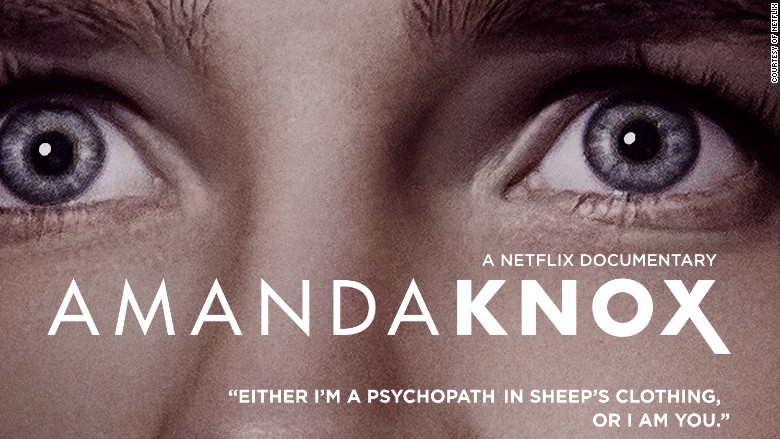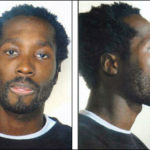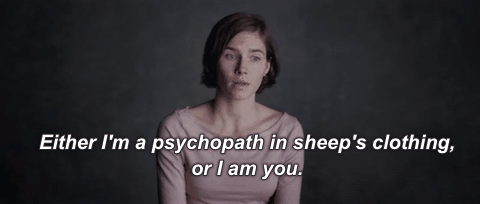“There are those who believe my innocence and there are those who believe in my guilt. There’s no inbetween – either I’m a psychopath in sheep’s clothing or I am you” – Amanda Knox
Amanda Knox is a remarkable documentary directed by Brian McGinn and Rod Blackhurst. Knox, you will recall, was an American woman respectively charged, convicted, acquitted, convicted and finally acquitted by the European Court of Human Rights of the brutal murder of her flatmate, Meredith Kercher, in Perugia, Italy in 2007. Both acquittals related to the lack of evidence against Knox and then boyfriend Raffaela Sollecito.
“Suddenly, I found myself tossed into this dark place. I thought about suicide. I thought about all the ways that I could do it. Me not coming home again until I’m in my 50s, until members of my family have died – I was poisoned.”
Worse for Knox, she was tried by the media and judged on the basis of her lifestyle long before the courts made any decision, in a way that a man most certainly would not have had his life shredded and analysed. This case above any demonstrates what to many people are the evils of the feeding frenzy, speculation and outright lies published by the media, particularly the tabloids.
Kercher was crucified with but could not fight back; Knox and Sollecito were accused of engaging in “sex games gone wrong” with Meredith. Some of these revelations, including her own sexual history, led to Knox being labelled “Foxy Knoxy.” As the prosecutor puts it:
“Amanda was a girl that was very uninhibited. Hearing Meredith’s friends convinced me if you could imagine a girl different from Amanda in every imaginable way, it would have been Meredith.”
One man, Rudy Guede, remains behind bars for the murder, but the fact is that in the confusion, the fact that other options were not widely explored and the considerable confusion around the legal farce, nobody truly knows what happened that night, who was involved or how Kercher ended up the victim of a senseless murder. It would appear most likely he was the sole perpetrator, in spite of the Italian police being convinced three parties were present – despite the lack of Knox fingerprints or DNA at the scene.
The film does not speculate directly, but attempts to steer a course between the evolving evidence. Neither does it judge its subject – though it does by the end veer towards her story by weight of evidence and the final verdict of the Italian courts. What it does do is silently allow most of the leading protagonists to speak for themselves, which technique is highly effective in giving each sufficient rope with which to hang themselves.
What is known is that relentless interrogation caused Sollecito to backtrack on his evidence that Knox spent the night of the murder with him and caused Knox considerable emotional trauma; that Knox was told by police, falsely, that she had HIV; and the fact that DNA evidence was almost certainly cross-contaminated in a botched investigation by the Italian police. Forensic DNA experts interviewed here were in no doubt that the evidence was hogwash, yet it was apparently never queried at the initial trial:
“You could see a lot of coming and going of people without protective suits. In other words, total chaos.”
In fact, under intense stress it is quite possible that the suspects gave way to relentless questions and agreed with the interrogators just to stop the questions, which in the eyes of the prosecutor demonstrates their naivety: greater emphasis was placed on this than any other form of circumstantial evidence; Sollecito, interviewed here and still looking young and wide-eyed, can offer no explanation.
The best available comes in the form of prosecutor Giuliano Mignini, whose bland, arrogant and patronising assertions certainly do his cause no good at all. He is very much hoisted by his own petard before the jury of TV land, though it’s fair to say that the role of the authorities could have been subjected to more intense scrutiny – despite protestations that the attacks on Italian justice are misplaced. I wish I could find the quote from a senior Italian lawyer on how they were formulating justice in the 14th Century while Americans were shooting arrows at one another.
Journalist Nick Pisa was responsible for much of the sensationalist press, having published excerpts from Knox’s prison diary and speculated on all the juicy gossip (see here.) To him it was the scoop of a lifetime:
“To see your name on the front page with a great story that everyone’s talking about – it’s just a fantastic buzz. I’d like to say it’s like having sex or something like that.”
Pisa sounds crass, but the blame surely lies in the prurient public interest in the tragic saga, such that people pay to read rubbish and fail to respect to the truly appalling nature of the murder and the grieving family. Kercher’s mother remained a model of dignity through the proceedings, keeping her comments to a minimum and blaming nobody, despite the heartache of repeated convictions and acquittals. As she rightly points out in the one recorded interview here, none of this will bring back her daughter.
Knox herself, now a writer and campaigner on miscarriages of justice, comes across as defiant but vulnerable, tearful in describing her enforced incarceration but otherwise incensed and affronted by her treatment. However, she did not strike me as being entirely an credible witness, even if her story of only returning to the house the following morning is utter truth. It’s difficult to put a finger on exactly why this should be, but she did not strike me as totally reliable. Mignini suggests she is hostile and argumentative towards authority, which may be the case in view of his overbearing attitude:
“Amanda had a very unusual way of reasoning. She kept going between dream and reality.”
This may have contributed to the police decision to pursue her involvement at the expense of almost every avenue of enquiry, and in the justice system to convict her twice, in spite of her unshakeable protestations of innocence. At any rate, she is now trying to get on with her life, which understandably is far from easy:
“I get into a line at the grocery store and the person behind me’s like ‘Woah, it’s you. I know you.’ And I really want to turn to them and go ‘Who the f*ck are you? And you don’t know me’.”
That could happen to any of us, subject to the accident of being in the wrong place at the wrong time.
The Guardian describes this documentary as “intriguing but flawed” – though to my mind it is probably about as objective and incisive as any documentary on this subject could be, without batting directly on one side or the other. Michael Moore would have made a very different documentary, but the point is that the truth is elusive and never to be known. Final word to Mignini, who at the end we learn that has since been promoted:
“If they’re guilty and earthly justice didn’t get to them, I hope they own their guilt because I know that life ends with a final trial.”

















